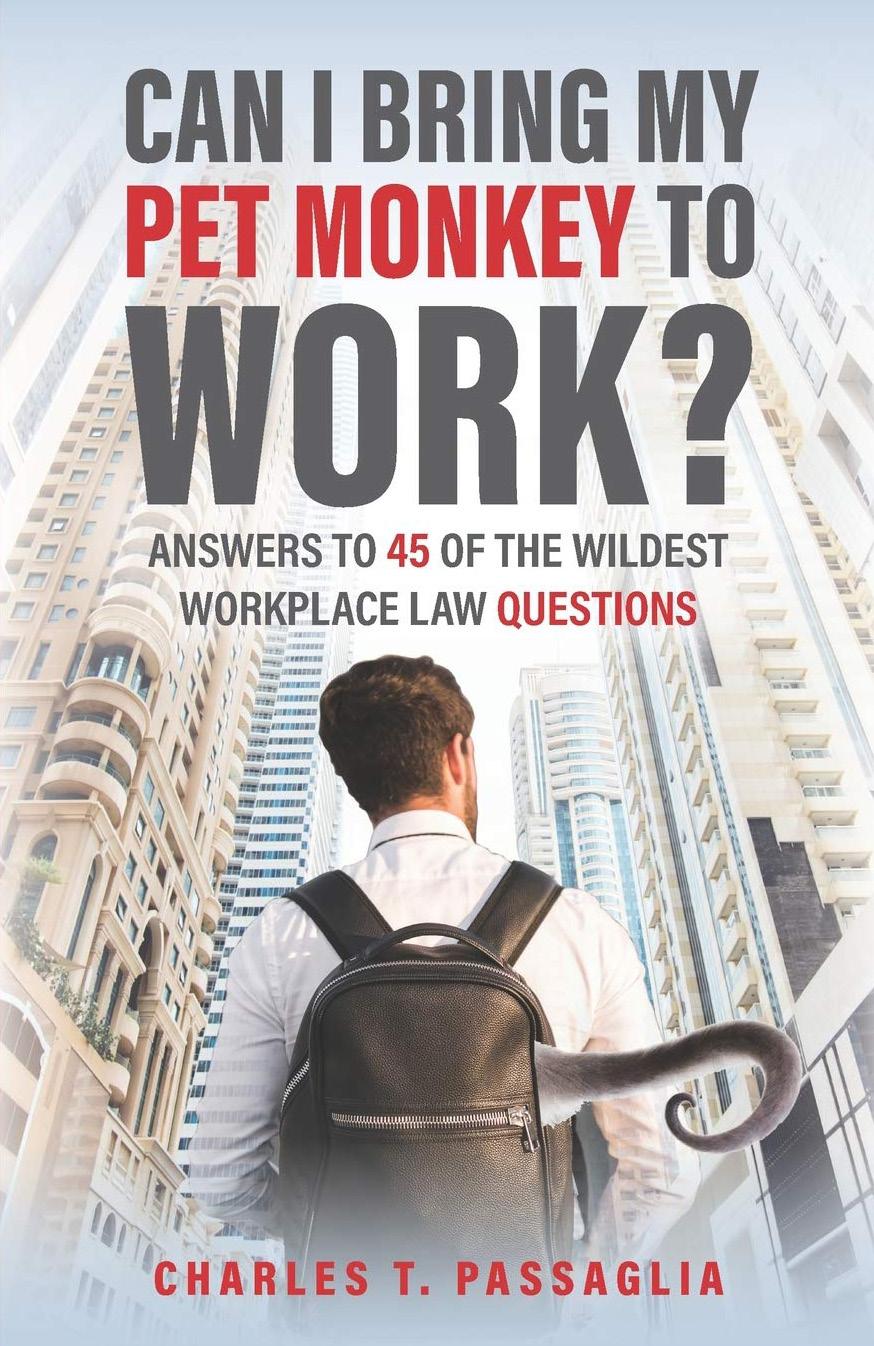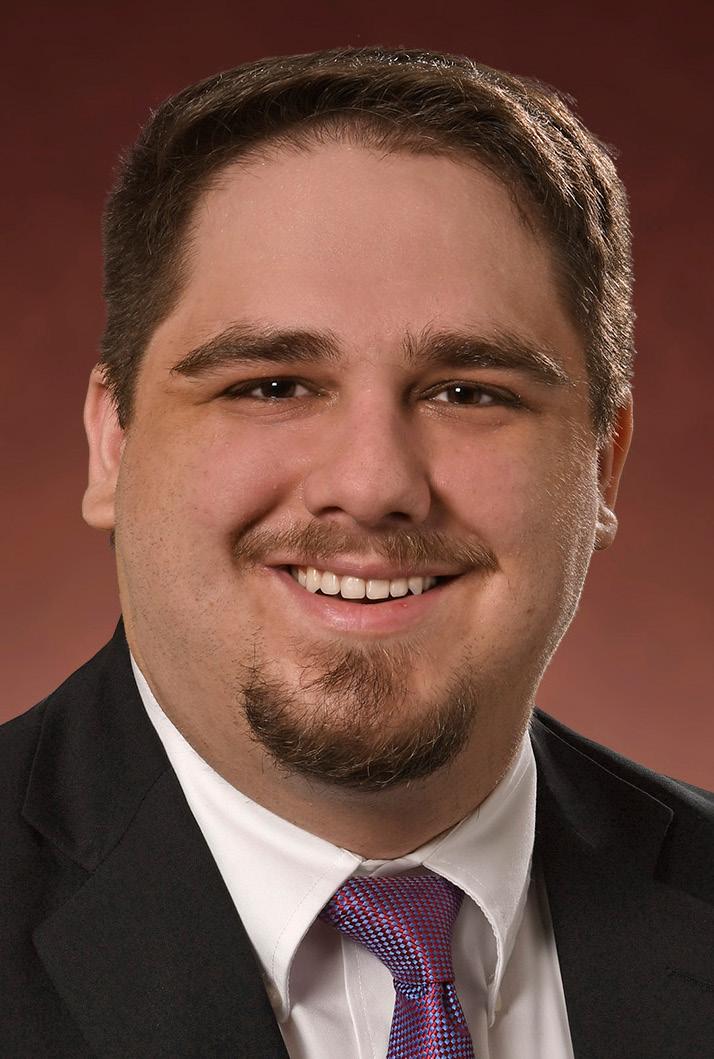
6 minute read
Surviving the Growth Process
COLAP WELLBEING CORNER | BY AMY KINGERY, MBA, LCSW, LAC
At this time of year, my two-year-old German Shepherd seems to shed enough fur to supply the neighborhood birds and bunnies with nesting supplies to last a lifetime. I diligently brush her every other day until the wiggles set in and she cannot sit still any longer. While the shedding process can be uncomfortable, restricting, and incredibly messy, without it she will be in for a miserable summer experience. As I begin the ritual again this year, I am reminded that last year at this time the pandemic was presenting new stressors on a regular basis and something as simple as brushing my pup was a soothing agent for me. And, during the spring and early summer, a reminder that in nature, change is normal and expected. While she might get impatient while I brush her, my dog does not take the need for grooming personally. She does not take offense to the change, or fight against it as if it is a fault of hers that change is needed. Since the drastic changes of pandemic living created many extreme emotions and reactions in most of us, including feelings of dread, uncertainty, and (especially for the perfectionists out there) the feeling that we were doing everything wrong or even failing, we also need to shed as humans — shedding old patterns or behaviors, and even opening ourselves up to feedback to put us on the right track to handle the unpredictable chaos and stressors we have been experiencing.
I have come to appreciate this process and the comforting cyclic nature of changing and growing, complete with the growing pains that adaptation to change creates. Four seasons have come and gone since my dog’s first spring shed and where I am at today is a space which welcomes uncomfortable shedding, redirection, and even failure as I would any season. Sometimes with trepidation or dread due to the unknown and new stressors, but also with a reverence for the change and progress that occurs when we reframe failure as an opportunity for growth. After the initial unpredictability of our pandemic experience subsided, I was able to rationalize that feedback, redirection, and mistakes are not to be feared or avoided. It is helpful to remind ourselves that while not everything is done perfectly every time, we have not completely dropped the ball and things are usually better than they seem. These are a normal part of our human experience, though the impact can be amplified and likely has been by the pandemic, social justice movements, and the usual high-stress nature of the legal profession. If we do not give space for the uncomfortable feedback, messy processing, and the shedding of old ways and ideas that are not serving us anymore, then we would become stagnant and unable to adapt adequately to our ever-changing environment.
What keeps me pushing forward when a season (or cycle) of failure hits (as it often does when we are trying something new like shifting to virtual hearings), whether it comes and goes like a spring rainstorm or takes root for the winter, is the promise of growth. If we dwell in our failure beyond the pain it brings, we will find no finer opportunity to better ourselves. Failure is our garden shears, a way of pruning back so that new sprouts and blooms may spring up. It is also an opportunity to rid ourselves of the dead branches, weight, mindsets, habits, and ideals which are no longer serving us and may even be holding those beautiful new blooms at bay.
I share these insights now as our personal and professional lives have been completely rocked by the last year and counting. As we begin to tiptoe back into the world, it is going to feel like one step forward and two steps back, or like a steady stream of missteps. Just maybe some of us will have the flexibility to ease through unscathed. I think it is important
that we acknowledge, for ourselves and others, that this dance is to be expected, and that it is not necessarily a bad thing. The process of trial and error is the natural, scientific process of inquiry, and it makes the wins so much sweeter when our seasons of despair, error, and sweat equity finally pay off. With that in mind, I encourage us all to remember to: o Acknowledge that correction, feedback, and redirection, while perfectly normal things to receive, can still sting even under the gentlest messenger. It is ok to lick your wounds (or a few pints of ice cream) before you move on to what you are going to do with it. But do fight to move forward. o During that licking-the-wounds phase, it generally is not our rational thought running the show, but rather our emotions. Tune into how you feel and pay particular attention to the feelings and thoughts surrounding the feedback. Note where in your body you feel these emotions. Acknowledge any anger, unfulfillment, or ineptitudes which may show up but then remind yourself that they do not represent the full picture (or even reality in many cases). o Learn to contextualize the feedback. Process what you have heard and determine what you can learn from the experience, what you are going to incorporate into your future work, and what you simply need to let go of and move on from. Write this down and consider talking it through with a trusted coach, mentor, or friend. o And finally, if you like many, find your inner circle has dwindled during what has been a season of isolation, now may be the perfect time to shed that layer of defense and actively seek out new supports. Engage with the Colorado Attorney Mentoring Program (CAMP) — either as a mentor or a mentee — or seek out someone you respect and whose values you would like to emulate and see if they would be willing to take you on as a mentee.
As a legal collective, we have an opportunity to bravely move forward during these trying and unknown transitions towards our new frontier. It is essential to do so, for the betterment of ourselves, our clients, families, and our communities. Do not ignore the hard situations and emotions, nor the grief and the loss that come along with it. Seek support from your Colorado Lawyer Assistance Program (COLAP) or re-engage with your therapist when help is needed for your healing process. Do commit and dedicate these hard times to a better season to come, one where the transitional shears have carved a path to a beautiful new season, full of growth we could never have imagined if we hunkered down and did not embrace the process of change.
AMY KINGERY is the Assistant Director for the Colorado Lawyer Assistance Program (COLAP). She is a Colorado native with over 15 years’ experience serving individuals, families and professionals working within the intersections of the courts, child welfare, behavioral health and trauma. Amy received her BA from the University of Hawai’i-Hilo and her MSW and MBA from Newman University. Ms. Kingery is a licensed clinical social worker and licensed addiction counselor in the state of Colorado.
SARAH MYERS, executive director of the Colorado Lawyer Assistance Program, is the coordinating editor of this wellness series. Contact COLAP for free and confidential assistance at 303-9863345 and info@coloradolap.org.










